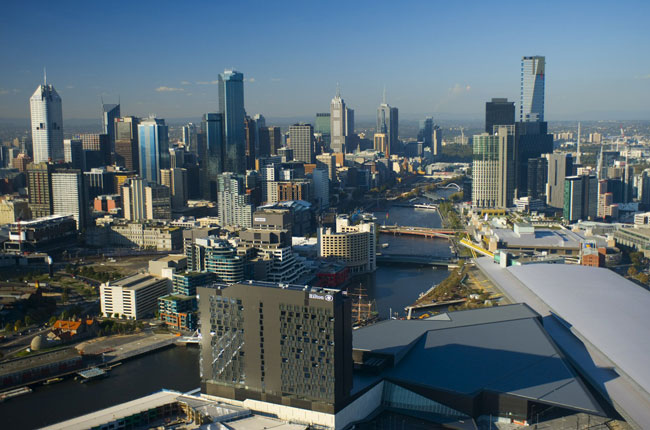How do you build an industrial hub like Silicon Valley? Many cities and regions have tried various tactics, from demolishing entire suburbs to attract corporate headquarters through to spending millions on enticing film productions and countless examples of setting up Digital Hubs.
An interesting experiment is happening at the moment in the Australian city of Melbourne where the Victorian state government is spending millions on subsidies to businesses, government enterprises and academic research centres to set up in the town.
One of the Victorian government’s most surprising moves was to poach Sydney’s Sydstart startup conference for a million dollars. Naturally the event will have to be renamed and there’s no word on who will pay for the branding consultant’s time.
Opening the chequebook
Having an open chequebook is fine, but in the absence of a broader strategy that ties in educational, financial and other vital factors for building an industrial hub it’s hard to see how spending taxpayers’ funds on adhoc projects is going to create a sustainable local tech sector.
The National Broadband Network security office subsidy is particularly galling given it’s a payment to a Federal government owned corporation and it’s highly likely the facility would have been based in Melbourne anyway given the organisation’s Network Operating Centre is already in the city.
Added to the embarrassment of the NBN announcement are the overwrought claims of job creation. While it’s possible a total of 300 building staff might be involved in the construction, the idea the centre will employ 400 IT and telco security staff is surely stretching credibility.
The failed games industry
Sadly for Victorian taxpayers this isn’t the first time their government has tried to use their chequebook to attract high tech business. In the late 1990s a similar effort was launched to attract video game developers.
For a while this worked but ultimately the Victorian games sector declined in the face of a high Australian dollar, a shift in the economics of studio produced games and successful competition from Queensland who built their own subsidised centre on the Gold Coast by offering better incentives that those on offer in Melbourne.
Both the Queensland and Victorian efforts ultimately failed and today both states have little to show for those subsidies.
At least though the Victorian government is trying, unlike its property development and coal mining obsessed neighbours in Sydney who are in the process of selling off their Australian Technology Park hub and replacing it with a poorly articulated thought bubble of a technology precinct based out of a disused power station in a transport blackspot.
Sydney’s failure
In the process of coming up with these ideas, the New South Wales government managed to alienate the most successful of Sydney’s tech startups, Atlassian who last week floated on the NASDAQ stock market for over four billion US dollars.
One of the notable things of Atlassian’s story, and that of most other successful Australian tech startups, is how little direct government support features in their development.
That direct government support like subsidies feature so little in these company’s successes really tells us what really works for governments wanting to develop an ecosystem – providing the environment for skills, capital and distribution networks to develop.
Without a long term plan it’s hard to see how Victoria’s ‘splashing the cash’ will end up any better than previous efforts with other industries. As Silicon Valley, Israel and the UK have shown, it’s consistent long term investment in the industries and the infrastructure that allows businesses to developed that creates successful industry hubs.

Leave a Reply